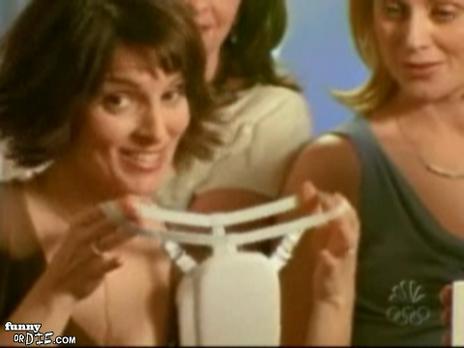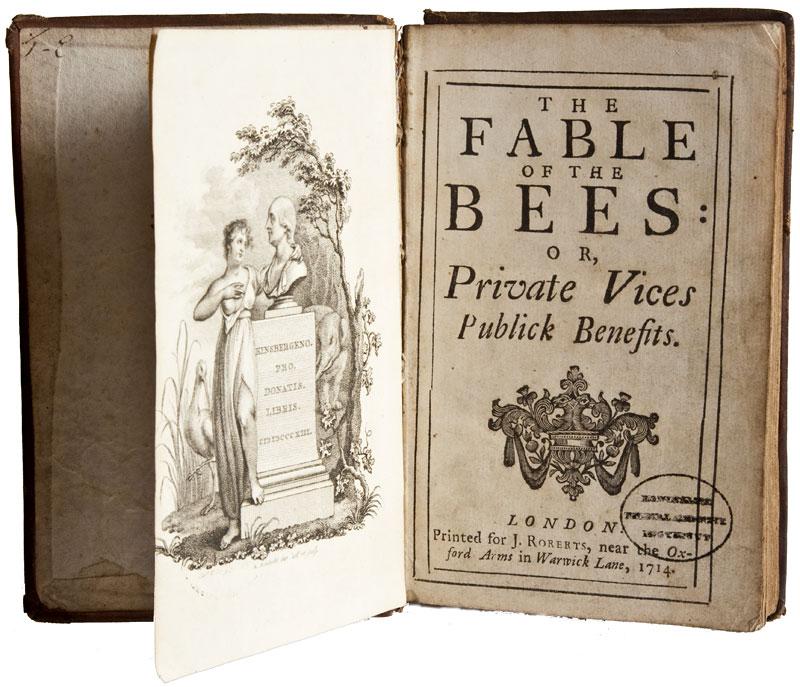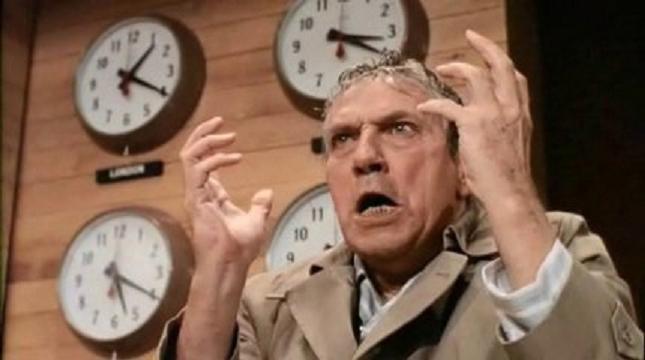
I usually post comedy on Friday assuming that it’s a source of end-of-the-week relief whose relevance is implicit, but today’s post invites more consideration.
Here’s a groundbreaking SNL commercial parody from 2002 featuring Tina Fey, Amy Poeher, Ana Gasteyer, Maya Rudolph and Rachel Dratch. These five women did a lot to change the place of women in comedy over the past decade, and this parody encapsulates how they did it: by demystifying feminine taboos and making them funny on their own terms. You can watch the video over at Funny or Die here.
Meanwhile, here’s Frye in “The Nature of Satire” on our response to the “naive and childlike quality in satire” that arises from otherwise risky subject matter:
[Satire] of this kind is based on a solid physical laugh, an earthquake in miniature, a laugh which begins far down in the abdomen, bursts the vest buttons, rolls the stomach, shakes the diaphragm, suffocates the throat, reddens the face, and finally reduces the whole body to rolling and kicking in an epilepsy of joy, then, after quieting down, returns for the next few hours in a couple of dozen squalls of splutters, gasps and reminiscent chortles, and finally sinks into the subconscious to be left until called for. (CW 21, 48)
In Notebook 12, he reflects on the barriers in getting past the anxiety associated with excretory functions, something that this sort of humor helps to diffuse:
I imagine it will be a long time before we have public toilets without distinction of sexes. That seems to be the last stronghold of the primitive passion for separate houses & initiation rites for the sexes: I am noting a strong desire for co-educational residences & the like, & am wondering if excretion rather than sex is the real basis for sexual segregation. E.g. puberty rites & seclusion at menstruation. (CW 9, 248)
In The Return of Eden, Frye delineates the convoluted relation between creation, sex, shame, and sin in Milton’s Paradise Lost as the state of fallen consciousness:
In refusing to recognize the Son as their own creative principle, then, the devils are closing the gate of their own origin. This theme of closing the gate of origin recurs all through the epic, and is the basis of the feeling which later appears in humanity as what Milton calls shame. Shame to Milton is something deeper and more sinister in human emotion than simply the instinctive desire to cover the genital organs. It is rather a state of mind which is the fall itself: it might be described as the emotional response to the state of pride.
In “The Top of the Tower: The Imagery of Yeats,” Frye provides an apocalyptic perspective on excretory functions:
To return to his creator, man has to come back down again, return on himself, seek the source of creative powers which are close to the sexual instincts, and are therefore in “the place of excrement,” as [Yeats’] Crazy Jane says, partaking of the corruption out of which all life comes [Crazy Jane Talks with the Bishop, l. 16.]
And, finally, in “On the Bible and Human Culture” (among other places), he associates the apocalyptic with the female — perhaps the best way to round out any meditation on why menstruation is funny until it isn’t because, like everything else wrongly associated with fear and shame of the human body, it is in fact an intimation of deliverance:
The story of the fall in the Jahwist account tells us that the woman took the initiative in breaking the divine prohibition regarding the tree of knowledge. This was of course a standard proof-text, for many centuries rationalizing a patriarchal social system, and in fact the Jahwist account itself says that patriarchy would result from the fall. Commentary has been so anxious to make this point that it has overlooked the fact that the creation of woman was placed at the end of this creation account, as the climax of the whole procedure. Besides, the conception of fall is unintelligible without its complement of reconciliation. Humanity falls as woman, that is, as sexual being, and it is clear that the eating of forbidden fruit has a good deal to do with the loss of innocence and the developing of the sexual relation as we now know it, or what D.H. Lawrence calls sex in the heard. In the Jahwist account, as in so many forms of social psychology today, morality, the knowledge of good and evil, is founded on the repressing or sublimating of the sexual instinct. But if humanity falls as woman, humanity must be redeemed as woman. In Christian typology the souls of all human creatures, whether they are biologically men or women, are symbolically female, forming the body of the bride Jerusalem or the people of God. The Virgin Mary in Catholic thought is placed at the head of all created human beings, below only the Jesus who was begotten, and she is the second Eve in much the same sense that Jesus, in the Pauline phrase, is the second Adam. (CW 4, 122)




